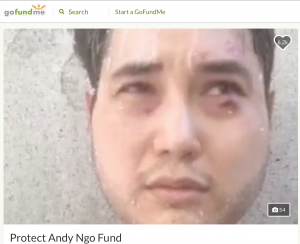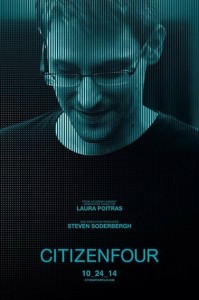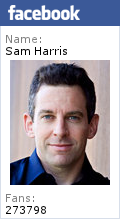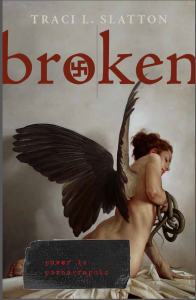My husband Sabin met Robin Williams in the lobby of our building. Sabin came away with respect for the comic. “He’s down-to-earth, a nice guy,” Sabin approved. These are rare words of praise from my laconic husband, who seldom dispenses compliments and who is impressed only by Leonardo da Vinci and Michelangelo Buonarroti.
Robin William’s recent suicide has erupted into a public ferment of discussion about suicide and depression. I worry about copycat suicides, but the new open forum can benefit people who suffer from depression.
I’m a deeply creative person and creativity is linked with depression. I’ve stood at the edge with my toes curled over, staring into the abyss, wishing with every angstrom of my being that I was dissolved into that nothingness. I have been in that place of despair. It feels like there is nothing else. It feels bottomless. I understand, beneath what can be articulated, what Williams felt in the last hours of his life.
I don’t know how I survived some of those experiences. When I emerge from them, I have always felt so ashamed of my “weakness.” It didn’t help that my borderline personality disorder mother and entitled narcissist ex-husband were quick to use my despair as a means of “proving” that I was less than, that I was deficient, even worthless. For them, my depression validated their unkind treatment of me.
One beloved friend wrote recently about her own near misses with suicide. For her, the gun in her mouth failed to go off. I am so grateful that it failed. She is beautiful person, full of grace; the world is richer for her presence in it.
For me, survival might have something to do with my most primordial DNA. Family legend says we have Cherokee blood; DNA testing revealed a preponderance of hitherto-unexpected Ashkenazim genetic markers–such a large percentage of them, in fact, that the genetic testing technician looked at my results and stated, “Oh, you’re Jewish.”
So I have thought to myself that my ancestors were marched down the Trail of Tears, and they were burned up in pogroms. I am the dregs of not one but two genocides. I think it has left a residue of something inside me that keeps going and going and going.
In the bleakest moments of depression, I felt like an infinite can of gray paint had spilled out everywhere, onto everything. It coated everything so thickly and airlessly that there was no light or color anywhere. It is an unbearable, unyielding oppression of spirit.
When I am out of that state, I can imagine how my grappling with the gray paint must have been hard on the people around me. I can empathize with the difficulties they experienced through me.
Unfortunately for me, until the last decade, many people closest to me were so filled with malice that they took satisfaction in my depression. I hope Robin Williams didn’t have those kind of people around him. My life is different now, I have been working on my boundaries. I don’t keep malicious people around me anymore.
Life is better when I have kind-hearted people around me.
Malice is itself a mental illness. Unlike depression, people who live in that state of malice see the impact they make on the people around them–and they enjoy hurting other people. From my own reading and research, they tend to be borderlines and narcissists.
I am dealing now in a legal forum with a borderline who is way off the reservation. She’s also a sociopathic liar. I’ve written in other posts how she went crazy when I made a business decision she didn’t like. She sent dozens of caustic, threatening, obscenity-filled emails; after impersonating me online, she impersonated an attorney to me, signing his name and legal credentials to a threatening email; she tried to extort thousands of dollars from me and my husband by threatening malicious litigation; she pretended she had contacted a dear friend of mine and he had given up some dirt on me; she fraudulently stopped payment on checks, one to me and one to a third party; she left vitriolic voicemails that I may upload into youtube so that other people unfortunate enough to deal with her know how truly deranged she is.
My dear friend wrote me, matter-of-factly, that contrary to what she’d written, he’d never spoken to her nor heard her name before I forwarded her email to him. “Good luck,” my friend wrote, “she sounds like a looney tune.”
But this psychotic woman is far more than a goofy looney tune. She’s mentally ill in a way that hurts other people and enjoys doing so. I watched her be vitriolic and abusive toward other women, before she unloaded onto me. She turns on women regularly. I also watched her craven seduction of every man in her purview. Her conversation was filled with statements about how other women were jealous of her and how every man wanted to sleep with her.
Why didn’t I wise up sooner to the extent of this psycho’s cruelty and insanity?
Partly because this psycho can appear normal and she knows how to flatter people.
Partly because I have a blind spot when it comes to borderlines, thanks to my mother.
Partly because it’s hard for me to impute malice to people. I just don’t get it. I want to live with integrity and to act with kindness and generosity toward people. Note: I don’t succeed every minute of every day, but this is my stated intention. I do not take pleasure in the suffering of other people.
So sometimes I don’t see what’s staring me in the face, whether it’s a borderline’s obvious psychotic imbalance as she bullies people, especially women, or the malicious, invasive obsession of an ex stalking my blog, visiting my blog site every day from wherever he is, sometimes several times a day.
I need to grow out of my naivete.
There’s the mental illness turned inward, that hurts the self. There’s the mental illness turned outward, hurting other people. Many books claim that the latter is a defense against the former, that people lash out with malice because of the pain of the rot at their own core.
Perhaps. Recently a healer with whom I am working defined “evil” for me: “It’s the conscious decision to harm another human being.”
It’s necessary to be wary, to be mindful, of this evil, whether it’s evil turned inward or turned outward.
For the evil turned inward, I’ve developed a series of strategies that help me. Regular exercise, for one. I have made a commitment to practicing yoga every day, and it’s not just because I’m vain and want a nice-looking body–though that’s part of it. Another reason is because yoga is the single best negative-pattern interrupt I’ve encountered in my 51 years. I go to the gym several times a week for cardiovascular exercise. I’ve worked on myself in psychotherapy and I receive spiritual healings. I’m filling my life with friends who have loving hearts, friends who laugh with me. I meditate. I chant mantras. I pray. Oh, yes, I pray every day.
I’ve trained myself to look in the mirror and say, “I love you and you are beautiful and worthy. You are a wonderful person.” This exercise in self-appreciation and self-love was the hardest thing I’ve ever accomplished in my life. It was much harder than going to Yale and Columbia from a modest, turmoil-filled family where no one had ever attended college.
Ultimately, I believe that this is the antidote to evil: Love. Love from within to the within. Love that starts with the self, and radiates into strong boundaries that keep out the malicious folks. Mature love that accepts that sometimes other people are malicious and must be kept out of the inner sanctum. Love that understands that sometimes evil will have its way.
I know that karma exists. Actions always return. Sometimes karma has a long, long arc, but in the end, evil is balanced.
Wherever Robin Williams is, I pray that he feels the outpouring of other people’s love for him. I pray that it leads him to greater and greater self love. I pray that the evil he did himself is balanced by some extraordinary kindness toward his soul. I pray that when people come to that moment of choosing to harm themselves, that some tiny particle of love comes in to pull them back from the abyss.









